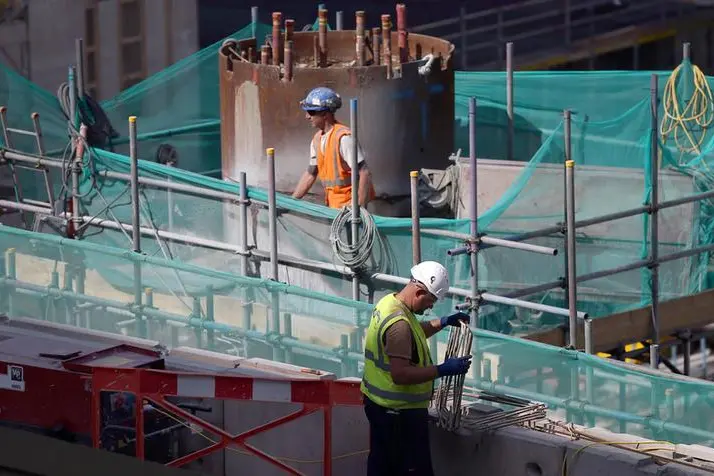PHOTO
Iraq is planning to rebuild its war-damaged ports, highways, schools, houses, dams and agriculture under the oil-for-reconstruction agreement with China that came into effect last year, the financial advisor to the Iraqi government confirmed.
Explaining the rationale behind the agreement, Mudher Mohammed Saleh told Zawya Projects that the federal government was hard-pressed to fund reconstruction projects since operating budget accounted for lion's share of the annual budget.
He said the oil-for-reconstruction deal, on the other hand, ensures that a portion of oil revenues is dedicated for funding reconstruction and other productive projects across the country.
Saleh explained that Chinese companies working on projects under the agreement will directly deal with the Iraqi government without intermediaries or middlemen, which will help eliminate delays, wastage and "the Iraqi cost" associated with the contracting sector in the country.
The Iraqi Cost, he explained, comprises of cost additions and risk premiums that added 40 percent or more to the overall costs.
Iraq would also benefit from the introduction of modern construction and building technologies by the Chinese companies, he noted.
China is an important buyer of Iraqi oil, accounting for 22 percent of Iraq's total oil exports or 900,000 barrels out of 3.88 million barrels per day of oil exports.
Saleh opined that the oil-for-reconstruction agreement is one of the ways whereby China is seeking to secure supplies of Iraqi oil up to 2060.
The Iraqi official underlined that Chinese companies have been active in Iraq's upstream sector since 2009. For example, China National Petroleum Corporation (CNPC) has been involved in developing the Rumaila oil field, Iraq's largest, in partnership with BP.
He also emphasised that the oil-for-reconstruction agreement doesn't mortgage Iraqi oil resources to a foreign country.
He elaborated: "Mortgaging Iraqi oil for many years, as some warn of it, is incorrect. There is a clause in the agreement that Iraq can cancel it any time it wants. This is an aid agreement from China as a friendly country to Iraq."
Saleh noted that the 20-year deal sets aside export revenues from 100,000 barrels a day out of the total exports of 850,000 barrels per day by the OPEC member to China, adding that if reconstruction projects under the agreement prove to be a success, export volumes could be increased to 300,000 barrels of oil per day.
He also disclosed that the Iraqi government has opened a credit account in a Chinese bank to deposit oil revenues arising out of the agreement, which would be used to pay Chinese companies implementing the projects.
Abdul Zahra al-Hindawi, the spokesman for the Iraqi Ministry of Planning told Zawya Projects that the Ministry has called upon all ministries and governorates to expedite submission of projects they would like to implement within the framework of the Iraqi-Chinese agreement.
(Reporting by Majda Muhsen; Editing by Anoop Menon)
(anoop.menon@refinitiv.com)
Disclaimer: This article is provided for informational purposes only. The content does not provide tax, legal or investment advice or opinion regarding the suitability, value or profitability of any particular security, portfolio or investment strategy. Read our full disclaimer policy here.
© Thomson Reuters Projects News 2020





















